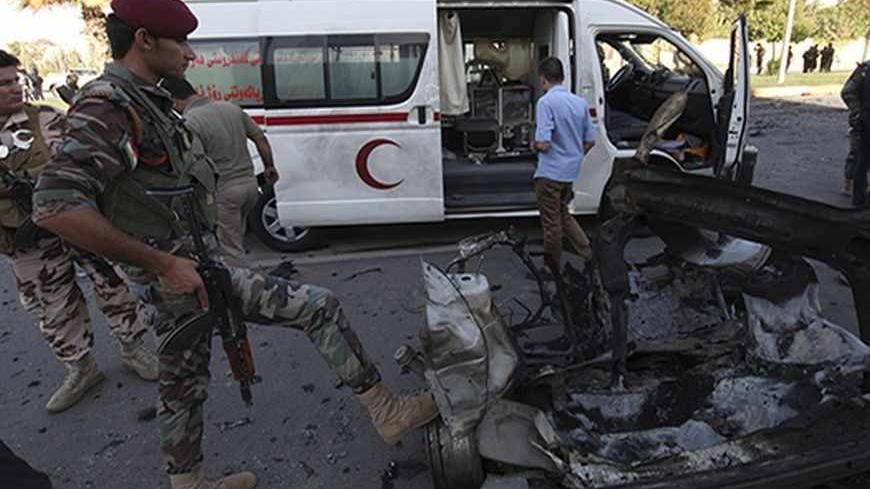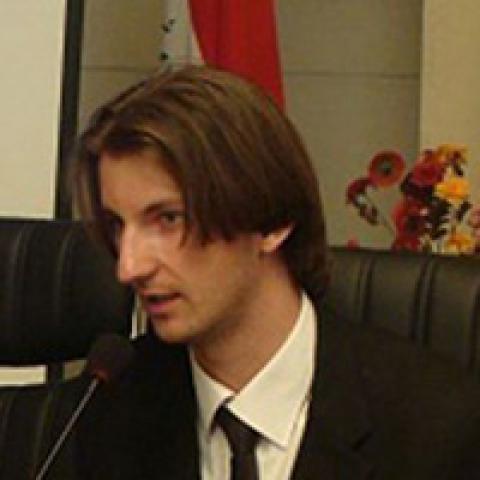ERBIL, Kurdistan Region of Iraq — On Sept. 29, the Directorate of Security (Asayish) in Erbil became the target of a successful suicide attack and another that failed. According to a statement by the directorate, six security officers were killed in a firefight that followed the attack, and 62 people were injured, including 42 security and police officers. It is the first attack in six years in Erbil in the Kurdistan Region of Iraq. The region is known for its stability and security — in contrast to the rest of Iraq, where attacks are frequent — and has attracted impressive amounts of foreign investment.
The Asayish statement noted, “The attacks come at a time when Kurdistan has achieved another democratic milestone by holding its fourth free and fair parliamentary elections [on Sept. 21], the results of which were announced one day before the terrorist attacks. The attacks demonstrate that there are those who stand against our democratic journey.”
In the first attack, a suicide bomber attempted to drive into the Asayish building, killing four people when the vehicle exploded. Minutes later, an ambulance carrying two assailants approached the building, but they were stopped and killed.
“For many years, the city Erbil has benefited from peace and security, and I urge the regional and national authorities to work together to ensure that calm and tranquility will continue to prevail and that those responsible for the attack are brought to justice," said Nickolay Mladenov, UN special representative of the United Nations secretary-general for Iraq.
Asayish is still investigating the incident and has not yet announced who it thinks, apart for "terrorists groups," is responsible for the incident. Kurdistan Regional Government (KRG) President Massoud Barzani visited the victims of the attack in the hospital.
There are several organizations that could be behind the attack. A large number of Islamist organizations have emerged in the Iraqi Kurdistan Region since the 1980s. Some of them carried out attacks, but the majority decided to participate in the electoral system after Kurdistan became de-facto autonomous in 1991.
Ansar al-Islam, formed by the merger of several insurgent groups in December 2001, has in the past carried out attacks and assassinations in the area, but in 2003, US Special Forces and fighters from the Patriotic Union of Kurdistan (PUK) destroyed the group's bases in Halabja. Taka Kamran, a former leading member of Ansar al-Islam, told Al Arabiya on July 22, 2011, “After the US forces entered the country in 2003 and bombed us for 13 days running, we went to Iran and then returned to Baghdad.”



